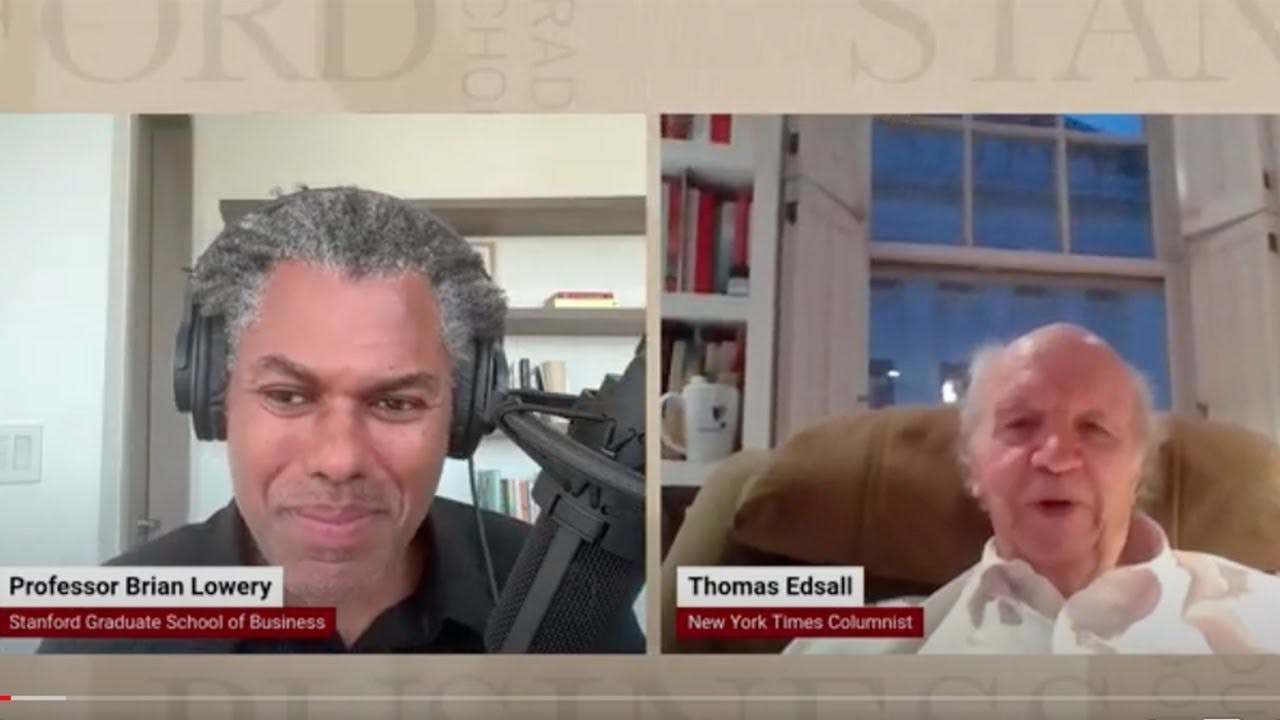The Divided States of America
28 Feb 2024 (almost 2 years ago)

Affective Polarization
- Political polarization in the US has shifted from focusing on policy differences to becoming a part of people's identities, leading to affective polarization.
- People strongly favor their own party and view the other party with hostility, making it difficult to reach agreements in politics.
- Affective polarization has also affected civic life, with people increasingly choosing to live in areas with others who share their political views and churches becoming divided along political lines.
Political Elites and Culture War Issues
- Political elites have played a significant role in driving polarization by taking strong positions on issues that appeal to their base and pushing their parties away from more moderate positions.
- Emotional issues, such as abortion, have played a significant role in mobilizing voters and shaping political identities.
- The rise of culture war issues, such as gay rights and women's rights, has significantly impacted American politics since the mid-1960s.
- These issues are highly divisive and do not allow for compromise, unlike traditional issues like taxation and spending.
- The Democratic Party has become increasingly associated with liberal positions on cultural issues, while the Republican Party has become associated with conservative positions.
The Republican Party and Donald Trump
- The Republican Party's elite control before 2016 contributed to the rise of Donald Trump and the emergence of a right-wing populist party.
- Trump challenged the corporate elite's support for immigration and trade, which resonated with white working-class voters who became crucial to the Republican Party.
- Trump's policies, such as his tax bill, favored Corporate America, but his unreliability, anti-trade stance, and anti-immigration policies have strained the relationship.
The Democratic Party and the Corporate Elite
- The Democratic Party has become dominated by well-educated white voters and college-educated individuals who are not opposed to globalization.
- This shift has made the Democratic Party the party of the elite and winners, while the Republican Party has become the party of losers and the non-elite.
- The corporate elite, who feel pushed out of the Republican Party, are now supporting Nikki Haley as a potential candidate to regain control.
- Corporate America has shifted its support from Republicans to Democrats, with the exception of the fossil fuel and highly regulated industries.
The Impact of Global Trade
- The rise of China and global trade has led to a decline in manufacturing jobs in the United States, particularly in the Midwest, which has contributed to the shift towards the Republican party in those areas.
- Trump's support base is largely due to his identification with the communities that have been negatively affected by global trade.
Threats to Democracy
- The Republican party is increasingly fearful of losing elections on a level playing field and is taking steps to tilt the system in its favor.
- A significant portion of the population supports Trump and will continue to do so even if he loses decisively, which raises concerns about the legitimacy of elections and the functioning of democracy.